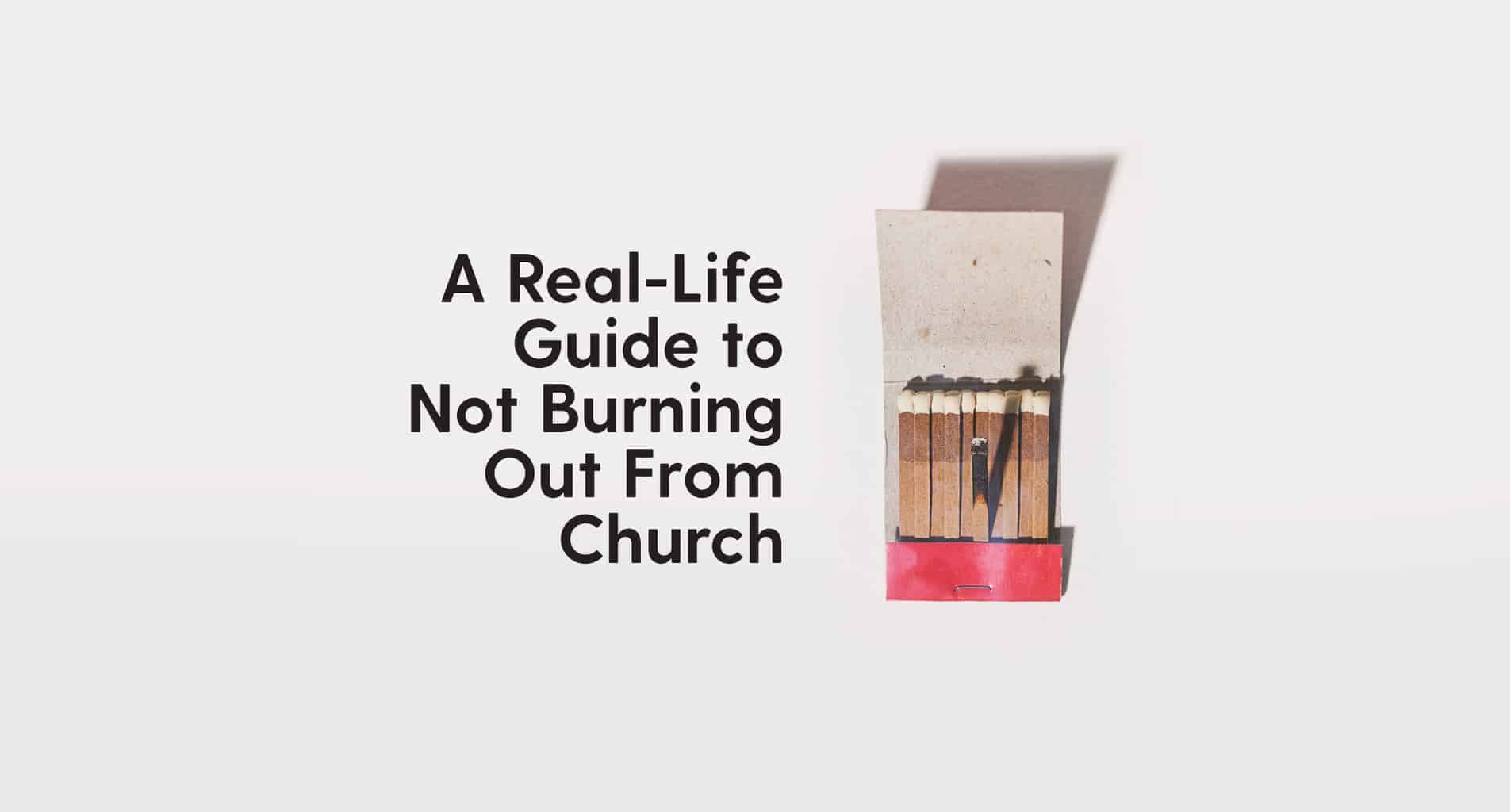
There’s a secret among certain Christian millennials: More than a few Sundays have passed, and they, well, haven’t been to church. Maybe the intention was there, but something kept them away from the very place they found themselves week after week for between two and three decades.
But they’re just burnt out from church. It’s a very real experience, likely one you have experienced—or are experiencing—too.
Across the board, millennials are opting out of church in record numbers. The often-cited 2015 survey by Pew Research Center revealed that of the massive portion of people leaving organized religion, more than a third are millennials.
Yes, loss of faith and general apathy are factors here. But for people like Nik Bartunek, a musician in the San Francisco area, the appropriate way to describe it is burnout.
Bartunek has been a Christian for most of his life, but several years ago, he got burned out on church and ended up leaving the traditional church setting.
“I was burned by the way the leadership treated other people,” he says. “Seeing something happen hurts me because you’re hurting my close friends.
“What made me burn out the most was a lack of community and authenticity. They were saying one thing, but the reality was reflecting something different.They said they wanted to be open to the way God moved, but any time that happened and it went against the way they felt—they took a hammer and shut it down.”
In Christian culture, feelings of church burnout are often met with well-meaning encouragement like, “Going to church shouldn’t be based on a feeling. It’s what God commands His people to do.”
The Church is for real people. And people sometimes get burned out. If that’s you, here are some things you can do.

Burnout Is Real, and it is a Problem
Burnout doesn’t just happen; it’s multidimensional, according to Joan Borysenko, who holds a doctorate from Harvard and is the author of Fried: Why You Burn Out and How to Revive.
“Burnout, like a lot of things, has a gradient from feeling tired and overwhelmed, to a complete loss of motivation,” she says. “Things you used to be passionate about, you just can’t get into anymore. That’s when your work really falls apart because you’ve killed off the inner root of what’s most important and don’t know how to restart it again.”
Psychologists have come up with a 12-stage scale for burnout and in its mild forms, it can look like losing sleep and having less patience than usual to serious physical symptoms.
Borysenko points out that, ironically, burnout happens because of intense hard work and wanting to do well, and is often mistaken for the same initial symptoms as clinical depression.
When it comes to church, this can be magnified: Borysenko actually says people who are passionate about changing the world and making a difference are the most likely to burn out. “Idealists actually burn out before anybody else,” she says. “They really, really want to make a difference in the world and work very hard to do that and have a great work ethic.”
Be Aware of Signs of BurnOut
To avoid burnout, Solomon Rexius, who pastors and trains college students at Cornerstone Church in Ames, Iowa, keeps an eye on the posture of his heart, even when he powers through in obedience to do ministry work.
“Religion is not a good enough motivation,” he says. “It’s continual grace to be loved by God and become more like Jesus. So, if I find myself wishing I was sick because I felt fatigued to do church, or I’m not as patient with people, I figure out what the energy-givers and the energy-takers are.
“I ask myself how is my personal devotional life. Is it vibrant or dutiful? I confess to a mentor—‘Here is how I’m feeling.’ I adjust the way I pray, or switch up how I spend time with God—playing music, exercising or pulling out to spend time with my family.”
To encourage his leadership team from burning out, Rexius reminds them:
— Be the squeaky wheel (that gets the oil). If your church has overworked you and used up your time, ask for clarity. Confide in someone. Let them know you want to get motivated, but also that you need to be reminded why this matters.
— Forgive them, because we are grace people. God will use you and use them.
Borysenko stresses the importance of setting boundaries in our personal relationships. “We all have needs and people are happy in a relationship with each other when they are able to express what their needs are in a kind way and get them met.”
That means being strong enough to verbalize your needs to the people around you.
Watch the Clock
Sociologist and Christianity professor Susan Phillips, author of The Cultivated Life and executive director of New College Berkeley, validates the impact of time stress on our perceived value we assign to church.
“From laypeople and from pastors, they wonder what the significance is of getting together for an hour. If it makes any difference. It’s hard for people to commit to a particular hour as it has become increasingly difficult in a culture where schedules are so fragmented. For families with kids with sports events and people who are drawn to work projects all the time—they find it hard to commit their one free day.”
Your journey to find value in church may not be Point A to Point B like previous generations growing up going to church services. Phillips refers to what anthropologists call “cultural transmission.” Our view of the church experience was shaped by personal choice, as we went to Sunday school engaging in a variety of activities, while the adults experienced church service more as a spiritual discipline.
Basically, the pressures you face are valid. Embrace your journey with Jesus and share your stories, instead of withdrawing.

Identify What You Want from Church
Phillips asks people to reflect on their church experience.
“I help them notice what they are truly desiring,” she says. “And see how they can find a community of other Christians who are expressing and pursuing the same desires. Some of them find small contemplative worship experiences, some get involved with an enormous social justice component rather than the worship piece.”
Here’s her point: Your needs shift during different seasons. You don’t have to love every aspect of church.
Let It Go
Like Borysenko, Joshua Becker, author of The More of Less: Finding the Life You Want Under Everything You Own and founder of BecomingMinimalist.com, says Christians often don’t see church burnout coming because it happens subtly.
“We don’t realize we’ve dedicated so much of our energy toward working hard to make more money and buy more stuff, we start cutting things out of life … like church and community,” Becker says.
“We are constantly pursuing upgrades in our lives—we’re so busy managing the stuff we have—we don’t have time to focus on our spiritual life and our soul pursuits.”
He suggests taking an evening or weekend to soul search and take inventory of your stuff and why you’re doing what you’re doing. Rate how happy or well-rested you are. Be bold. Make radical changes to create space in your life for what really satisfies: loving and being loved in a faith community of different people.
Borysenko agrees that the first step in any case is to take time to journal—what you think the problem is, how you’re feeling—and then take inventory of the things that make you happy and bring you joy.
She cautions that it may not feel good when you start at first, but it will feel better as you continue.
“Just get it out. You will feel bad doing it but within two weeks you’ll actually start to feel much better.
“Some of the gloom clouds will leave. You’ll have more insights. We know now even the immune system will start to improve [through] expressive writing.”
Rest in Jesus
John Ortberg, author of Soul Keeping and senior pastor of Menlo Church in Northern California, encourages burnt-out believers first by validating what some church leaders often leave unspoken.
“People struggle with being burnt out generally,” he says. “Problems of feeling stressed, sickness, exhaustion, depression, meaninglessness and boredom. The greatest difficulty is that most people don’t feel like the Church has something to say that can help them with those problems.
“Often our churches add onto the treadmill of more, instead of helping people to step back. To see what they need to let go of. And begin new.”
Ortberg sees burnout among church leaders as just as common.
“To the church leaders—who are often as burnt out as the people we’re trying to serve,” Ortberg says. “It will be very difficult for a burnt-out pastor to bring good news to a burnt-out listener. You’ll work as hard as [you] can to be successful—right up the point of burnout. Instead you should say, my goal is becoming the right person. Resting [with Jesus].”
Do a Spiritual Detox
One thing Ortberg is working on these days is engaging with the Alcoholics Anonymous community and looking to the 12 steps as a practical way of following Jesus or pursuing discipleship in a transformational way.
Spiritual sobriety, he says, is the concept of being honest about your needs and struggles with others. Once you can be honest and express these things, Ortberg suggests, community is formed.
This is also personal for Ortberg. He says that once, when he himself was asking questions about the reason to go to church, his mentor Dallas Willard replied that, “The main reason to go to church is to find people to love.’
“The central commitment is to love God with all your heart and love people,” Ortberg says. “The main reason followers of Jesus just inevitably find themselves gathering together over the centuries is to find people to love and with whom they can receive help to love God more.”
He suggests community is a fruit of being transparent and vulnerable—not something churches can just create or produce. And it’s not something you can consume as a product or feature of church.























